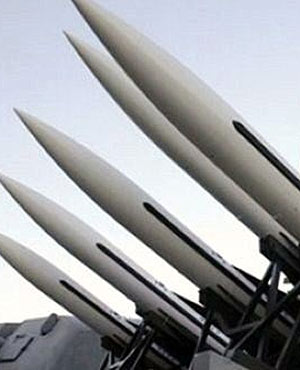
Drones and other autonomous weapons are illegal under international law and their continued use threatens global peace, an international law conference heard this month.
Mary Ellen O’Connell, professor of international dispute resolution at the US-based Kroc Institute for International Peace Studies, told the 77th biennial conference of the International Law Association in Johannesburg that every state that had used unmanned weapons had evaded legal and moral questions on their use outside of war.
Since November 2002, when the first drone was used to kill an individual outside of a conflict, more than 2 500 people have been killed in such attacks, by the US government’s own estimate, O’Connell told a panel discussing the use of robots and other autonomous weapons.
“This is making us less safe,” she said at the panel, titled Coming to a Theatre Near You – Robots that Kill. “We are losing the benefit of legal barriers to violence. We are at a very weakened point for the rule of law.”
Lethal autonomous weapons (LAWs) are robots designed to select and engage military targets without the intervention of a human being.
Critics such as the Campaign to Stop Killer Robots argue that the weapons raise legal, ethical and technical questions, and should be banned.
The US, UK and Israel are among countries that have developed and used the robots, often cited as the next step in warfare.
“Do we want to live in a world where robots have the power of life and death over humans? Somebody should be taking that moral responsibility,” Professor Christof Heyns, director of the Institute for International and Comparative Law in Africa at the University of Pretoria, said at the panel discussion.
“It’s the depersonalisation of the use of force [that is problematic]. This takes law enforcement away from people – the duty to protect is challenged.”
Proponents argue that the robots may help reduce human casualties in war, and banning them before the technology is fully understood could be counterproductive.
Professor Noam Lubell of the UK’s University of Sussex, said the issue wasn’t the robots, but the law.
“If they can be used in a way that complies with the law [they should be used],” he said, arguing that many concepts, such as the contested “meaningful human control”, needed to be fully developed as there were systems in which humans were not fully in control.
He was challenged by Heyns and Thompson Chengeta, a member of the International Committee for Robot Arms Control, who said there was no internationally agreed definition of “meaningful human control”. Autonomous weapons should only be allowed if a human was in full control, he added.
“We should close the potential accountability gap which is being created by the machines,” he said.
The UN has held a series of meetings on LAWs under its Convention on Certain Conventional Weapons, with the last meeting taking place in Geneva, Switzerland, where various experts presented papers on the emerging technologies and agreed to continue discussions.




 Publications
Publications
 Partners
Partners








